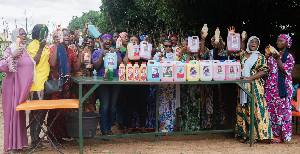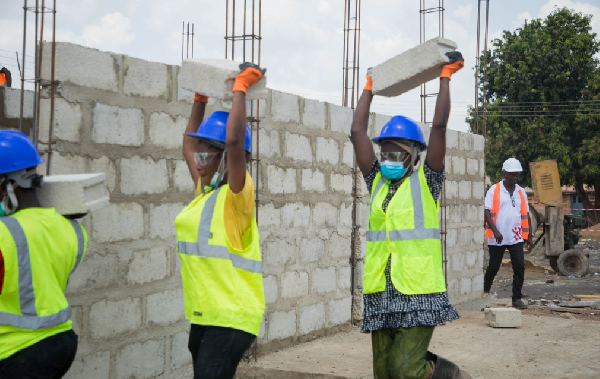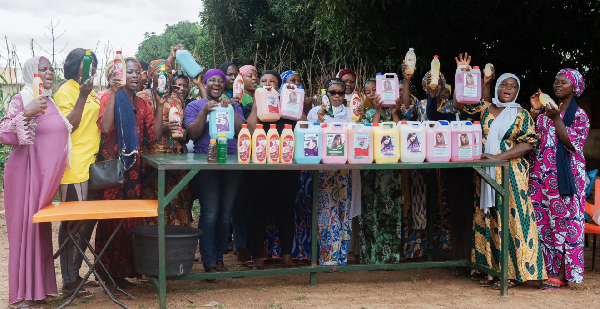 Some beneficiaries of the SOCO project
Some beneficiaries of the SOCO project
In an effort to curb unemployment and build economic stability, the Gulf of Guinea Northern Regions Social Cohesion (SOCO) Project has created over 6,200 permanent and short-term jobs in Ghana’s northern and Oti Regions.
This impactful initiative is transforming communities across the Upper West, Upper East, Northern, North East, Savannah, and Oti Regions, giving thousands of people a fresh start with sustainable employment.
The Gulf of Guinea Northern Regions Social Cohesion (SOCO) Project is a World Bank initiative targeting vulnerable regions within the Sahel with a USD 450 million credit facility, of which Ghana is allocated USD 150 million.
This collaborative project spans Ghana, Côte d’Ivoire, Togo, and Benin, focusing on areas facing intense challenges like food insecurity, climate vulnerability, and social instability.
Implemented by the Ministry of Local Government, Decentralization, and Rural Development (MLGDRD), the SOCO project seeks to build resilience in the northern regions and Oti Region by investing in critical infrastructure, fostering local economic development, and strengthening social cohesion in communities susceptible to economic fragility and potential violent extremism.
Through coordinated efforts across these countries, SOCO aims to create sustainable opportunities, especially for youth, and address the root causes of instability in the region.
Through the implementation of its 530 sub-projects in the first year, the SOCO project has made a direct impact by delivering interim 3,800 unskilled labour roles that offer immediate income to individuals and families in the selected 48 MMDAs project communities.

Approximately 2,000 skilled labour positions that help build expertise and strengthen local industry and infrastructure and 426 community facilitator roles empowering local leaders to serve as coordinators and connectors within their communities.
Ministry of Local Government Decentralization and Rural Development reports that unskilled labour opportunities alone have generated GHC 5.379 million in earnings for local workers, while 24,652 individuals, mostly women, have received tools, equipment, and materials to support their livelihood projects.
SOCO project’s commitment to community transformation has led to the implementation of 530 infrastructure projects in its first year, including roads, classrooms, markets, health facilities, and water systems that not only provide essential services but also serve as hubs for local employment. With a particular focus on empowering women, who are central to Ghana’s rural economy, the project has supported countless households and fueled community-wide economic growth.
The distribution of productive assets like tools and materials has given thousands of people, especially women, the resources they need to sustain and expand income-generating activities.
The Ministry of Local Government Decentralization and Rural Development (MLGDRD), as the implementing ministry, is committed to expanding the project’s reach.
Initially benefiting 48 districts, MLGDRD is actively pursuing the inclusion of an additional 16 Metropolitan, Municipal, and District Assemblies (MMDAs) across the five northern regions and the Oti region, which were not included in the first cycle of implementation.
Through these expansion efforts, the government aims to ensure that more vulnerable communities can benefit from the SOCO project’s transformative impact on employment, infrastructure, and economic development.
KA
Watch George Ayisi’s interview with Adam Bonaa on the recent unrest in Bawku below:
